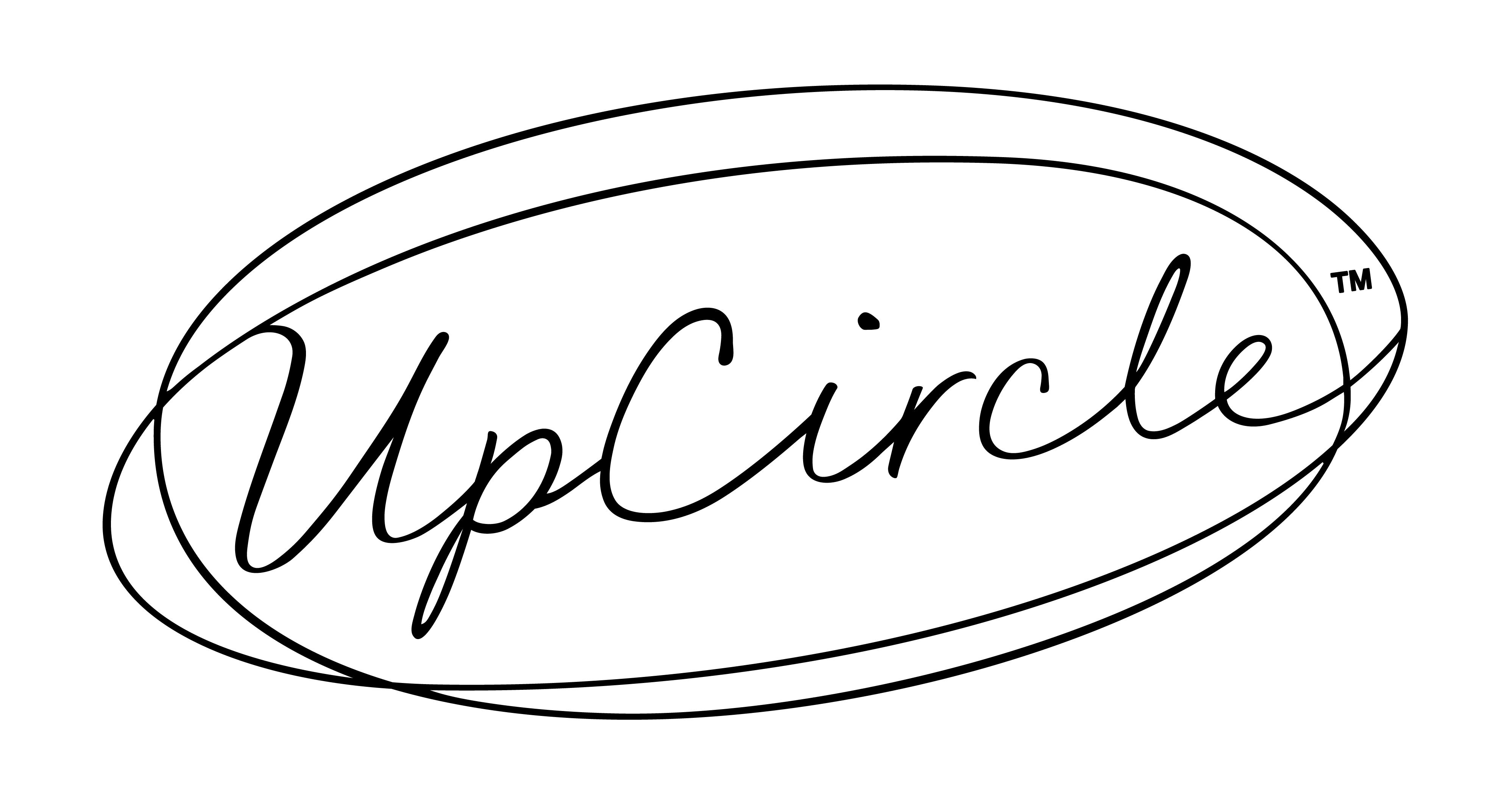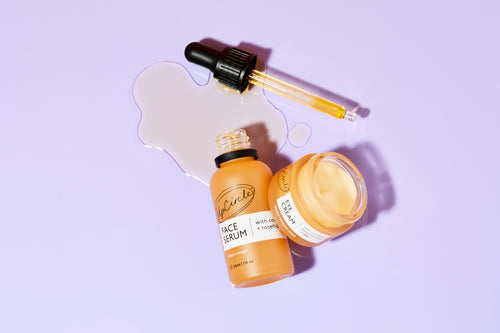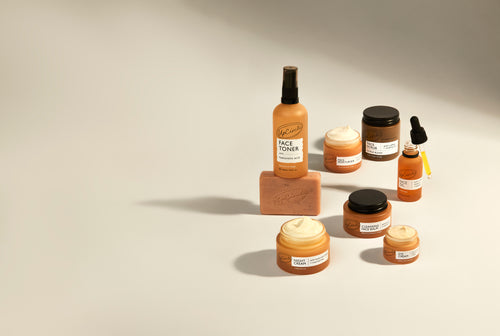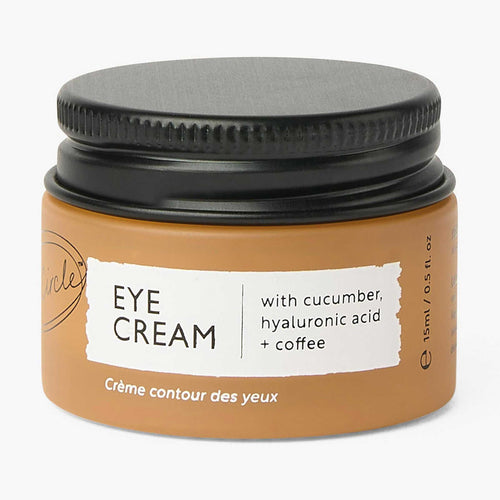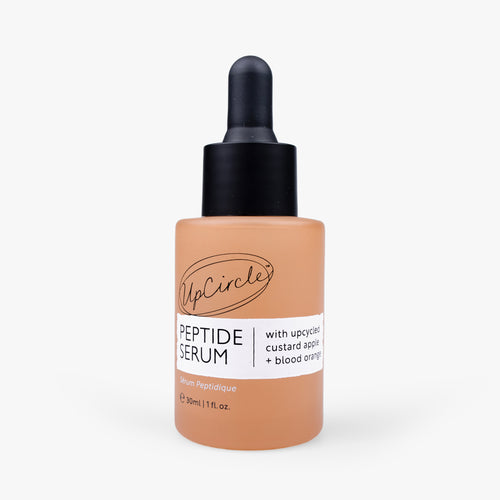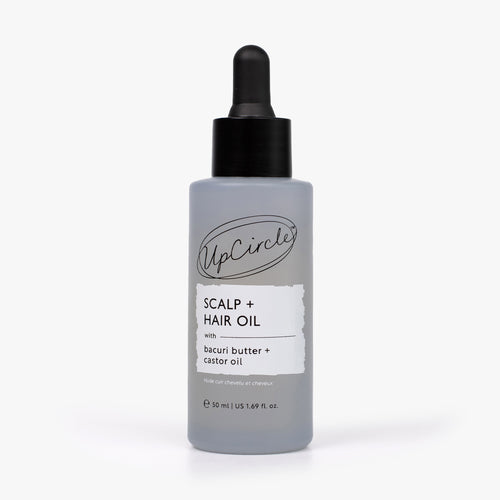It is believed that parabens exist in 75-90% of cosmetics (not ours!). But they are frequently hailed as a baddie. How can this be? To get your head around it, you first need to understand what parabens are, and why they are used so widely. Then you need to dig up the dirt to discover if they deserve the bad rap that they get.
What are parabens?
No, they aren’t a bunch of guys called Benjamin taking on daredevil plane jumping antics. Parabens are a common preservative in anything from cosmetics to food. They are used because they will give a product a longer-shelf life, staving off green furry stuff. They are synthetically created. You find them in a variation of things - from moisturiser to mascara, and from shampoo to sun cream.
Indeed, parabens have good intentions. At concentration levels of just 0.3-1%, they aim to stop any horrid harmful bacteria taking root in your favourite product before you’ve had a chance to finish it. Which, for a waste-fighting brand like us, can be argued as a positive goal.
HOWEVER! This is where it all gets a bit complicated. Those who believe parabens are completely-harmless-no-questions-asked will focus on the fact that, although synthetically created, they come from something called para-hydroxybenzoic acid. You can say that with less of a mouthful as PHBA. PHBA naturally occurs in quite a number of our delicious wonder foods, such as blueberries. PHBA is also naturally created in our bodies as we break down some amino acids.
Those who view parabens as harmless argue that the parabens created for use in things such as medicines, processed food and cosmetics are exactly the same as these naturally occurring substances.
But this is where it all gets extremely muddled if we really want to understand what parabens are and why they are bad (but stick with us!!) Just because a single paraben, or even multitudes of parabens occur naturally, doesn’t mean that it is healthy to be exposed to them at high levels.
It’s a numbers game: paraben exposure
Go back to our original stat – that 75-90% of cosmetics contain parabens. Parabens are really popular with manufacturers. They are great at what they do; extending the life of a product. They are also cheap to produce.
In each individual product, you don’t need to use much to reap the benefits. So, at an individual level, that little paraben isn’t so bad. However, because they are so widely used, it’s difficult not to be exposed to them on a far bigger scale. Frankly, we’re back in nursery doing 1+1+1 and quickly discovering our heads will pop with the size of these numbers.
And add up it does. The American Centers for Disease Control and Prevention, whilst stating that parabens are not known to have any harmful effects, do reveal that women on average have seven times more of some parabens than men in their bloodstream. This is likely due to cosmetic usage over time.
So is exposure to parabens a problem?
Well, that’s where we really get into a heated debate. The jury, quite frankly, is out.
However, let’s dig into some of the information available so that you can make your own mind up and understand why we err on the side of caution and keep our products paraben free. In fact, we are so convinced these guys aren’t good guys that we have included them in our list of Toxic Nasties.
The biggest issue relates to the build-up in our body over time, because we are so attuned to absorbing parabens. This is then combined with the fact that parabens are believed to be endocrine-disrupting chemicals. What this means is that, in the absence of our endocrine system knowing what it’s facing, it treats parabens as naturally occurring hormones.
The paraben is like an unwanted guest at a fancy dress party – in this case, masquerading as oestrogen. Oestrogen is what we think of as the ‘female’ hormone. Scientists think this because parabens have been found in breast cancer cells; although scientists currently believe that this isn’t evidence that parabens increase your breast cancer risk.
The issue for many is that the current scientific thinking all goes back to an original experiment done on rats (yes we know, nasty, but don’t give up on us now). The argument is that there isn’t a breast cancer risk for humans because we, generally, don’t come anywhere near the exposure levels the rats got.
However, it doesn’t take a genius to work out that this all seems to come back to a numbers game. If we are merrily slathering our face in paraben-added moisturisers, whilst chowing down some paraben-added grub, day-in-day-out, then we are exposing ourselves to fairly hefty amounts of parabens over the years.
Is there weight behind the ‘parabens are bad guys’ theory?
After parabens started to snowball their bad rap, The Cosmetics, Toiletries and Perfumery Association released a statement saying:
“We can reassure the public that all cosmetic and toiletry products containing parabens may continue to be used safely.”
Of course, this begs the question – why did Denmark go ahead and ban parabens in children’s products!?
A matter of individual choice
This is why we strongly believe that you should be able to decide whether or not you want to play that numbers game. You should be able to decide for yourself that you aren’t the kid in nursery stacking the highest tower of blocks just for them to crack you on the head. Maybe there’s sense in stacking fewer blocks? Maybe we want to heed the mantra: nothing in excess.
It should also be a matter of individual choice because it would appear that some individuals react more to parabens than others. After all, we are each wonderfully unique and who knows what bizarre thing our own individual internal-workings are getting up to?
How to choose paraben-free products
Given their prevalence, it can be tricky to find and select products that don’t have parabens in them. You’ll have to become a pro at scouring the ingredients list. Clue: if there’s a Latin sounding word ending in ‘paraben’, there are parabens in it.
However, let’s face it; we’ve all got better things to be doing than scouring ingredients lists. This means your best bet is to choose products from brands you know are singing from the same hymn sheet as you when it comes to values and ethics.
At UpCircle we believe in all-natural, so you won’t find any parabens here. Not in any of our products. Full stop. Shop our natural, paraben-free skincare.
